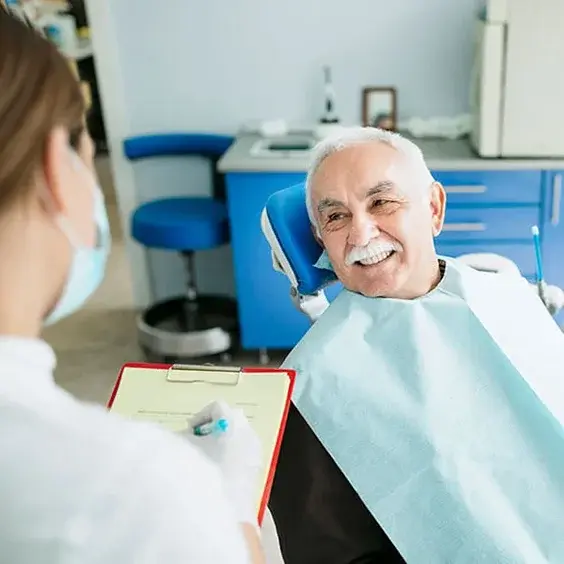Personalized, Preventative Dental Care Services for You
Good oral hygiene means more than just brushing and flossing. Our dental specialists in Mansfield provide teeth cleaning, polishing, and fluoride treatments so you can feel confident of your smile.
Service offered at the following location(s): Hollidaysburg, Johnstown, Selinsgrove and Williamsport

Why Preventative Care?
To properly take care of your teeth and gums, it is essential to have regular dental checkups and professional dental cleanings. Preventative dental services will help:
- Identify and treat dental issues before they become serious.
- Remove plaque and tartar buildup on your teeth.
- Help prevent cavities and other potentially painful problems.
Good oral hygiene and preventative dentistry can help reduce the risk of dental problems and secondary health issues that stem from poor dental health, including:
- Diabetes
- Heart diseases
- Respiratory issues
- Cancers
- Low birth weight and premature births
What to Expect
Your preventative dental care visit will include a thorough examination of your teeth, gums, and mouth, x-rays. teeth cleaning to remove plaque and tartar, a fluoride treatment, and oral cancer screening.
BeforeTreatment
Preventative dentistry starts at home and continues at your dental office visits.
Preventative dentistry is about avoiding problems that can arise down the line. Education on proper oral hygiene, routine care, proactive cleanings, diagnosis, and treatment, can ensure and maintain strong, cavity-free teeth and healthy gums.
Brushing, flossing, and other regular routine care can help you prepare for your preventative care dentist visit.
DuringTreatment
You can expect services like oral exams, regular cleanings, educational instructions, and x-rays during your preventative dental care visit. This will help identify and treat early dental issues before they become serious.
Some general dentistry services range from 30 minutes to a few hours. On average, a cleaning visit takes about 60-90 minutes. We offer dental sedation services and other things that can make you more comfortable during your visit.
AfterTreatment
A preventative cleaning exam is a great way to maintain good oral health. After receiving treatment you should:
- Wait 30 minutes before eating or drinking, especially if fluoride was applied
- Avoid hot foods and hot drinks for a couple of hours after a cleaning
- Brush gently before bed
Your First Visit
Our dentists and staff want to ensure that you and your family achieve optimal oral health. It is never too late or too early to practice preventative dental habits. Your first visit will take about 60-90 minutes and include services like a teeth cleaning and an exam as well as plenty of time to speak with your dentist and hygienist about any concerns.
Modern Dentistry
All the latest technology can be found at our Pennsylvania, PA dental offices.Judgment-Free Office
We're here to help you feel confident in your smile. We provide a safe, judge-free zone for any dental issue or concern you have.On Your Schedule
Taking care of your dental health should fit within your schedule. We are open late and on weekends so you can get the care you need.Insurance
and Financing









No Insurance?
No Problem.
Making An Appointment Is Easy










FAQ
Frequently Asked Questions
Flossing reduces the number of bacteria in your mouth. There are millions of these microscopic organisms feeding on food particles left on your teeth. These bacteria live in plaque and can be removed by flossing. Brushing your teeth gets rid of some of the bacteria in your mouth. Flossing gets rid of the bacteria the toothbrush can't reach. If you do not floss, plaque remains between your teeth and eventually may harden into calculus/tartar. Plaque can be removed by brushing, but only a dentist or dental hygienist can remove calculus/tartar. Ask your dental professional to show you the proper way to floss. You will both notice the difference at the next cleaning appointment.
It is important to brush your teeth twice a day and floss daily.
Replace your toothbrush every three months. It is recommended that patients with periodontal disease replace their toothbrushes every four to six weeks. If you have been sick, replace your toothbrush as soon as possible. Read the instruction guides for replacement guides for electric toothbrushes as they may need to be replaced more frequently.